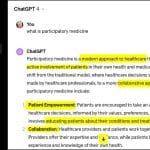“Women More Likely to Turn to Internet than Friends or Family for Health Information” according to a January 22 comScore press release. Reading further you find out “The study was designed to help explain how women choose their birth control method … and ultimately whether their online activity influences their offline decisions.” In other words, what makes women decide where to spend their birth control dollars.
They suggest, “As the number of women using the Internet for health information increases, the importance of user-generated content (“UGC”) also becomes vital – providing women with the opportunity to engage in health conversations online. The comScore study evaluated the use and appeal of UGC – such as blogs, forums, or chatrooms – among women seeking birth control information online… These insights confirm the already popular industry trend toward more online health discussion.”
In their press release they don’t highlight the finding that 82 percent of the respondents also turned to medical professionals for information. And what about the 51 percent that discusses birth control options with family, friends, and their significant other? Why is it not surprising that “Through its proprietary technology, comScore measures what matters across a broad spectrum of behavior and attitudes. comScore analysts apply this deep knowledge of customers and competitors to help clients design powerful marketing strategies and tactics that deliver superior ROI.” So bottom line — comScore is recommending that pharma get on the Health 2.0 / UGC bandwagon because it’s a good way to market birth control to women.
If you add up all the numbers in the survey (82 percent, 60 percent, and 51 percent) it’s clear that most women in the study are consulting multiple sources. I’d like to think these women are the e-Patients. Being an e-Patient is much more than participating in a chat or a Blog — even this one. Women e-Patients may turn to discussion groups, chats, Blogs and other UGC to gather information before making a decision. They may also read books, talk to friends, their significant other, their doctors, and any number of other healthcare professionals. . In my opinion, this is where e-Patients differ from Health 2.0 users. It’s also what makes us hard to market to :-)






Here’s another critique of the comScore study over on the blog “Web 2.Oh…really?” (A skeptic’s guide to emerging web technologies):
User-Generated Content: Can You Find the Pill Shill?
http://2ohreally.wordpress.com/2008/01/27/user-generated-content-can-you-find-the-pill-shill/